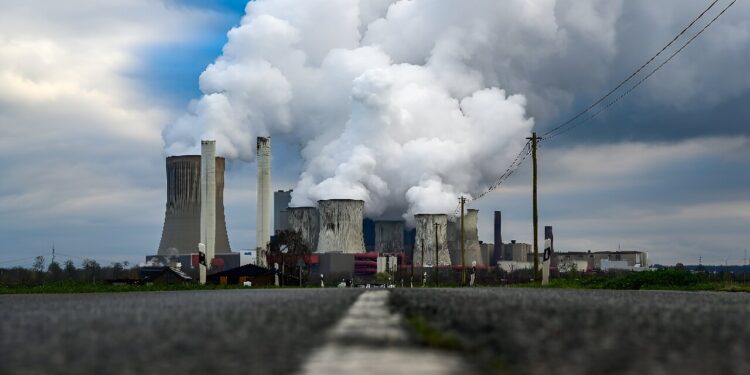India has overtaken the European Union to become the world’s third largest emitter of fossil fuels, a study shows.
The world could cross the crucial global warming threshold of 1.5°C in seven years thanks to fossil fuels.2 Emissions continue to rise, scientists warned Tuesday, urging countries attending COP28 to “act now” on pollution from coal, oil and gas.
Battle lines emerge over the future of fossil fuels at the UN climate summit in Dubai, with big polluters trying to fend off calls for a deal to phase out carbon-intensive energy, responsible for the majority of human-caused greenhouse gases.
Fossil fuel CO2 pollution increased by 1.1% last year, according to an international consortium of climate scientists in its annual Global Carbon Project assessment, with emissions rising in China and India, now the world’s largest and third largest emitters.
They estimated there is a 50% chance that warming will exceed the Paris Agreement’s multi-year target of 1.5 degrees Celsius by 2030, although they noted uncertainties around warming due to non-CO emissions.2 greenhouse gas.
“This is becoming more and more urgent,” lead author Pierre Friedlingstein, of the Global Systems Institute at the University of Exeter, told reporters.
“The weather between today and 1.5 degrees is dropping significantly, so to keep any chance of staying below 1.5°C, or very close to 1.5°C, we need to act now.”
‘Wrong direction’
The historic Paris Agreement of 2015 saw countries commit to limiting temperature rise to well below 2°C compared to the pre-industrial era and preferably to 1.5°C.
The more ambitious 1.5°C target has since become more urgent as evidence emerges that warming beyond that target could trigger dangerous and irreversible tipping points.
To meet this limit, the UN IPCC climate panel declared that CO2 emissions must be cut in half this decade.
This is becoming an increasingly difficult task as emissions continue to rise, the Global Carbon Project found.
Glen Peters, a senior researcher at the CICERO Center for International Climate Research, said carbon dioxide emissions are now six percent higher than when countries signed the Paris agreement.
“Things are going in the wrong direction,” he said.
This is despite a promising rise in renewable energy, a key issue at the Dubai climate talks, where more than 100 countries signed a call to triple renewable capacity this decade.
“Solar, electric vehicles, batteries, all of that is growing rapidly, which is great. But that’s only half the story,” he said.
“The other half is reducing fossil fuel emissions. And we’re just not doing enough.”
India overtakes the EU
The research found that fossil fuels accounted for 36.8 billion tonnes of the total 40.9 billion tonnes of CO.2 emissions are estimated this year.
Several major polluters recorded a drop in CO emissions2 emissions this year, including a 3 percent decrease in the United States and a 7.4 percent decrease in the European Union.
But China, which accounts for almost a third of global emissions, is expected to see a 4% increase in CO2 emissions from fossil fuels.2 This year, research shows, coal, oil and gas production has increased as the country continues to recover from COVID-19 lockdowns.
Meanwhile, an increase in CO2 Emissions of more than eight percent in India mean the country has now overtaken the EU as the third largest emitter of fossil fuels, scientists have said.
In India and China, growing demand for electricity is outpacing significant deployment of renewable energy, Peters said.
Aviation emissions are up 28% this year as they rebound from pandemic lows.
The research was published in the journal Earth system science.
The Earth has already warmed by around 1.2°C, triggering fierce heatwaves, wildfires, floods and storms.
Temperatures this year have reached the highest levels in recorded history and the UN World Meteorological Organization said that by October 2023 the temperature was already around 1.4°C above the pre-industrial reference.
Going above 1.5°C for a single year would not, however, violate the Paris agreement, which is measured over several decades.
More information:
Pierre Friedlingstein et al, Global carbon budget 2023, Earth system science (2023). DOI: 10.5194/essd-15-5301-2023
© 2023 AFP
Quote: The world could exceed the warming threshold of 1.5°C within 7 years: study (December 5, 2023) retrieved on December 6, 2023 from
This document is subject to copyright. Apart from fair use for private study or research purposes, no part may be reproduced without written permission. The content is provided for information only.



